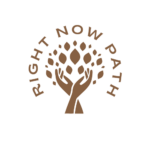In a world where the quest for self-improvement never ceases, personal development coaching has emerged as a key player in helping individuals achieve their fullest potential. This specialized coaching focuses on enhancing one’s skills, goals, and overall quality of life even home decor. Whether it’s navigating career changes, improving interpersonal skills, or fostering a deeper sense of self-awareness, personal development coaches provide the tools and support necessary for personal growth and success.
Personal Development Coaching
Personal development coaching empowers individuals to explore self-improvement areas through structured and professional guidance. It focuses on personal growth, aiming to enhance an individual’s skills, goals, and overall life satisfaction.
Exploring Its Definition and Purpose
 Personal development coaching involves a process where a coach supports a client in achieving personal growth and improving their quality of life. The purpose of this coaching style is to help individuals identify their strengths and weaknesses, set personal goals, and develop strategies to achieve these goals. Coaches work closely with clients to foster a deeper understanding of themselves, unlock their potential, and make significant changes in their lives. This type of coaching addresses various aspects of life such as emotional intelligence, time management, and stress reduction, enhancing both personal and social functions.
Personal development coaching involves a process where a coach supports a client in achieving personal growth and improving their quality of life. The purpose of this coaching style is to help individuals identify their strengths and weaknesses, set personal goals, and develop strategies to achieve these goals. Coaches work closely with clients to foster a deeper understanding of themselves, unlock their potential, and make significant changes in their lives. This type of coaching addresses various aspects of life such as emotional intelligence, time management, and stress reduction, enhancing both personal and social functions.
Differences Between Personal and Professional Coaching
Personal and professional coaching, while similar in methodology, focus on different areas of an individual’s life. Personal coaching centers on personal growth and life satisfaction outside of the professional context. It helps clients enhance their personal relationships, increase self-esteem, and manage personal challenges. In contrast, professional coaching is tailored specifically towards career development and professional goals. It focuses on improving professional skills, expanding career opportunities, and managing work-related challenges. Each type of coaching targets specific outcomes and utilizes unique strategies tailored to the individual’s goals, whether they pertain to personal life or professional environments.
Benefits of Personal Development Coaching
Personal development coaching offers substantial benefits by enabling individuals to unlock their full potential and improve their quality of life. It provides crucial insights and strategies tailored to each person’s unique needs and aspirations.
Improved Self-Awareness
 Personal development coaching significantly boosts self-awareness. It enables individuals to discover and acknowledge their own emotions, strengths, and weaknesses. Coaches use various techniques, such as reflective exercises and personality assessments, to help clients gain a deeper understanding of themselves. With increased self-awareness, clients are better equipped to understand how their thoughts and feelings influence their behavior, promoting a higher level of self-acceptance and confidence.
Personal development coaching significantly boosts self-awareness. It enables individuals to discover and acknowledge their own emotions, strengths, and weaknesses. Coaches use various techniques, such as reflective exercises and personality assessments, to help clients gain a deeper understanding of themselves. With increased self-awareness, clients are better equipped to understand how their thoughts and feelings influence their behavior, promoting a higher level of self-acceptance and confidence.
Enhanced Decision-Making Skills
Effective decision-making is another key benefit of personal development coaching. Coaches empower clients by providing tools and frameworks that sharpen cognitive abilities and facilitate clearer thinking. Clients learn to evaluate options more critically and make decisions that align with their long-term goals. By mastering these skills, individuals enhance their personal and professional lives, leading to more satisfying outcomes and reduced stress from indecision.
Better Work-Life We Balance
Achieving a sustainable work-life balance is crucial for long-term happiness and well-being. Personal development coaching addresses this need by helping clients set realistic boundaries between their career and personal life. Coaches guide individuals in prioritizing tasks, managing time more efficiently, and cultivating habits that support a balanced lifestyle.
Key Techniques Used in Personal Development Coaching
Personal development coaching employs a variety of techniques to facilitate growth and positive change. These methods, customized to meet individual needs, empower clients to explore and achieve their personal and professional objectives.
Establishing Clear Goals
 Coaches help participants articulate their aspirations and establish SMART goals—specific, measurable, achievable, relevant, and time-bound. By setting clear goals, clients gain a roadmap for achieving desired outcomes, such as career advancement or improved personal relationships.
Coaches help participants articulate their aspirations and establish SMART goals—specific, measurable, achievable, relevant, and time-bound. By setting clear goals, clients gain a roadmap for achieving desired outcomes, such as career advancement or improved personal relationships.
Effective communication is a staple in personal development coaching. Coaches use reflective listening to understand and clarify clients’ thoughts and feelings. This technique ensures the client feels heard and validated, fostering a supportive and empathetic coaching environment.
Accountability Partnerships
Coaches serve as accountability partners, ensuring clients stay committed to their goals. Regular check-ins provide clients with the motivation and support needed to overcome obstacles and make consistent progress.
Strengths-Based Approach
Emphasizing strengths, rather than solely focusing on weaknesses, enables clients to build on their existing skills. This approach encourages positivity and self-confidence, helping clients leverage their innate strengths to navigate challenges.

